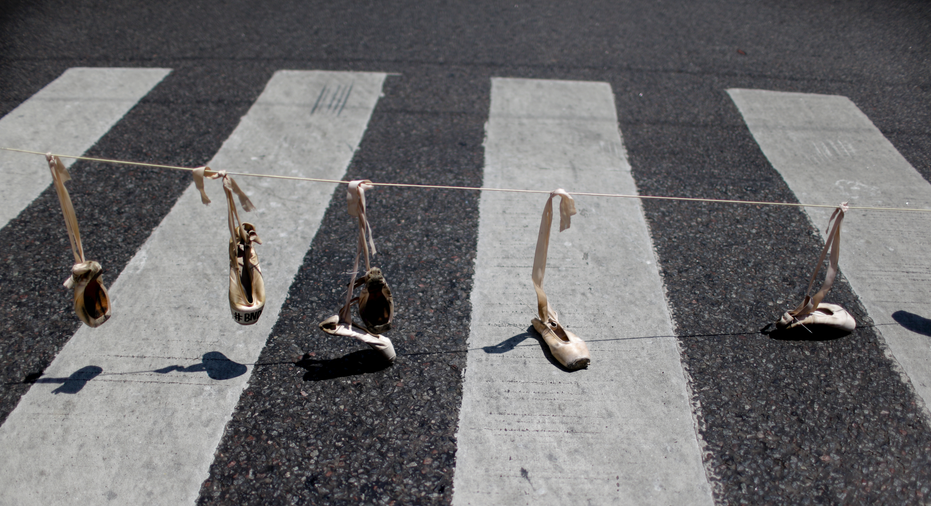Argentina ballet dancers protest by performing in the street

BUENOS AIRES, Argentina – Ballet dancers took to the streets of Argentina's capital Thursday, blocking traffic but causing onlookers to break into cheers and applause as they performed pirouettes to "Swan Lake" in protest of government funding cuts.
About 80 dancers, choreographers, and other workers of the state-funded National Ballet of the Dance lost their jobs in December under government austerity measures.
Protesting dancers stretched and warmed up at the barre amid honking cars before their performance and hung a long rope with ballet slippers on a downtown street.
"Culture, education and health are pillars of a nation and a society," said Manuela Bruno, 28, one of the troupe's dancers. "So the cutbacks shouldn't start there, or perhaps never happen at all."
President Mauricio Macri came into office in 2015 promising to cut government spending and attract foreign investment to revive Argentina's struggling economy.
"By cutting the ballet, the government is not going to save a lot of money," said Matias Carugati, an economic analyst with the Management & Fit consultancy. "But the government has to always think: Where should I cut money from? The ballet? Retirees? Public employees? It's trying to cut from what is less of a priority."
The measures, however, have stoked unrest in a country with a long tradition of the state providing jobs and benefits. Macri's government struggled to contain violent protests in December over a pension overhaul bill that also triggered a 24-hour general strike by labor unions.
Meanwhile, Argentines continue to lose purchasing power to a high inflation rate, and many are growing increasingly frustrated with increases in fuel and transportation costs that have harmed Macri's popularity ratings.
"Fiscal consolidation is rarely easy and never popular," said Goldman Sachs economist Alberto Ramos.
But he warned that if the government backs off its cuts, the overall economy will worsen "and you can then count on even more social activism and protests ahead."
The elimination of the ballet program shocked many in Argentina's capital, which is famed for its cultural offerings.
Tango is danced in the streets and halls across the city and is still one of its top exports. Some of the best ballet dancers, opera singers and philharmonic operas have performed at the famed Teatro Colon.
"We're also talking about culture in general and perhaps in the future, about children who might have had the chance to see the national classic ballet as a potential career option for them," ballet dancer Margarita Peralta said as she prepared to perform on the street.
"I think this shows that they're not thinking of present nor future effects."
__
Associated Press journalists Debora Rey and Paul Byrne contributed to this report.
__
Luis Andres Henao on Twitter: https://twitter.com/LuisAndresHenao



















